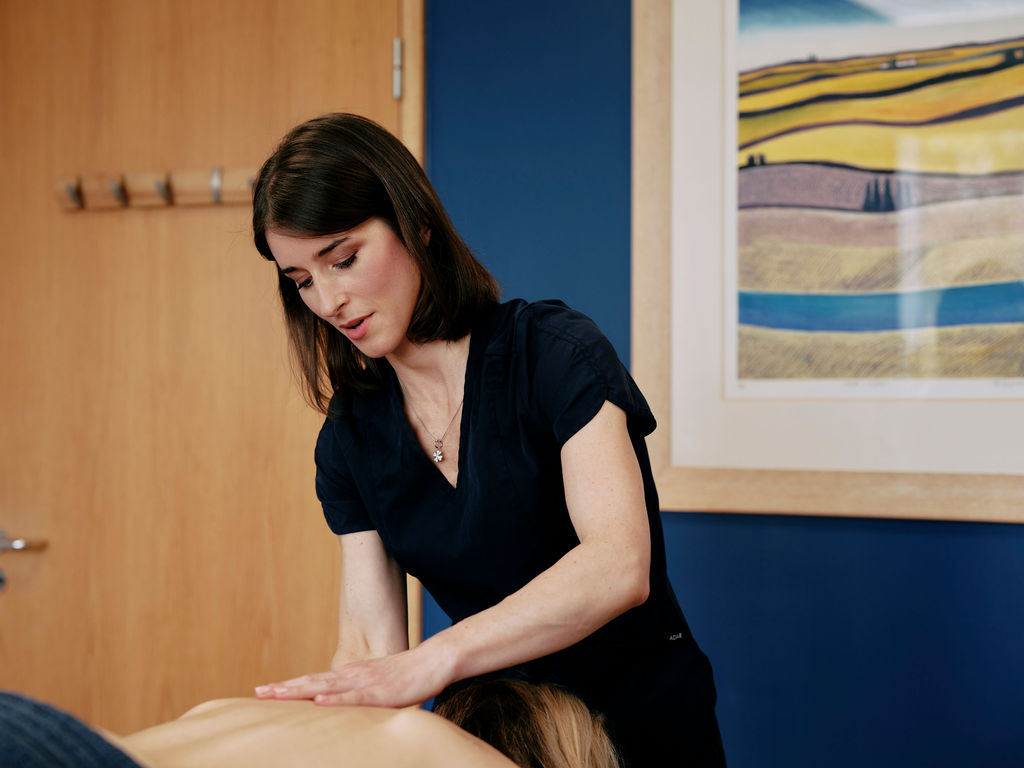Recovery & Rehabilitation
Recovering from injury, surgery, or a long-term condition requires more than just rest. It takes the right support to rebuild strength, restore mobility, and prevent setbacks. At Health Point Clinic, we combine acupuncture and massage therapies to ease discomfort, accelerate healing, and guide you back to full activity with confidence.
Post-Surgical Recovery
After surgery, it’s common to experience stiffness, pain, and restricted movement. Our treatments help reduce scar tissue, improve circulation, and support the body’s natural healing process, while also easing the stress and fatigue that can come with recovery.
Rehabilitation after injury
From sprains and strains to more complex injuries, rehabilitation is a gradual process. Acupuncture reduces pain and inflammation, while massage helps restore flexibility and function. Together, they support your body in regaining strength, balance, and confidence.
Long-Term Maintenance & Prevention
Recovery does not stop when the pain eases. Ongoing maintenance treatments can prevent problems from returning, improve resilience, and support long-term performance whether in sport, work, or daily life.
Booking Tip: Many patients find it helpful to plan a course of treatments during rehabilitation, gradually spacing sessions out as recovery progresses. We work very closely alongside physiotherapy programs and other allied healthcare professionals. Often, patients are given exercises to strengthen weaker muscles or create better balance. Sometimes these exercises can feel uncomfortable or even painful, which can be worrying, especially for those who have learned to fear pain over time in chronic cases. Acupuncture can support your rehab journey by reducing exercise-related discomfort, helping you carry on with your program confidently, and ensuring your recovery progresses safely and effectively.
Acupuncture Research
Acupuncture is included in the NICE guidelines for Chronic pain (primary and secondary) in over 16s: assessment of all chronic pain and management of chronic primary pain (CG193) and headaches: diagnosis and management (CG150)
In recent years high-quality clinical trials investigating acupuncture have been conducted, particularly for chronic pain conditions. Therefore, there is evidence available, and the systematic reviews can draw firm conclusions. A systematic review of high-quality trials, Vickers et al 2018, involving over 20,000 adults with osteoarthritis, chronic headache or musculoskeletal pain (back, neck or shoulder) concluded:
- acupuncture was more effective than control for all pain conditions (pragmatic trials)
- acupuncture is not a placebo for treatment of chronic pain
- the effects persisted over time (15% reduction at one year)
Further Acupuncture Research:
- Support post-stroke recovery: motor function, swallowing & cognition (1)
- Reduce post-op & rehab pain (2)
- Boost recovery from fatigue, weakness & injury (3)
- Lower risk of post-stroke complications: spasticity, incontinence & more (4)

- Chen L, et al. BMC Complement Altern Med 2016;16:226; Yang A, et al. Acupuncture for stroke rehabilitation. Cochrane Review August 2016
- Fang J, et al. Sci Rep 2016;6:25850; Lee SH, et al. BMC Complement Altern Med 2016;16:228
- Fang, Y., et al., Acupuncture and moxibustion for chronic fatigue syndrome: A systematic review and network meta-analysis. Medicine, 2022. 101(31). Zhang, Q., et al., Acupuncture for chronic fatigue syndrome: a systematic review and meta-analysis. Acupuncture in Medicine, 2019. 37(4): p. 211-222.
- Cai Y, et al. Arch Phys Med Rehabil 2017;98:2578-89.e4; Thomas P, et al. Cochrane Database of Systematic Reviews. Interventions for treating urinary incontinence after stroke in adults (Review). 2019
